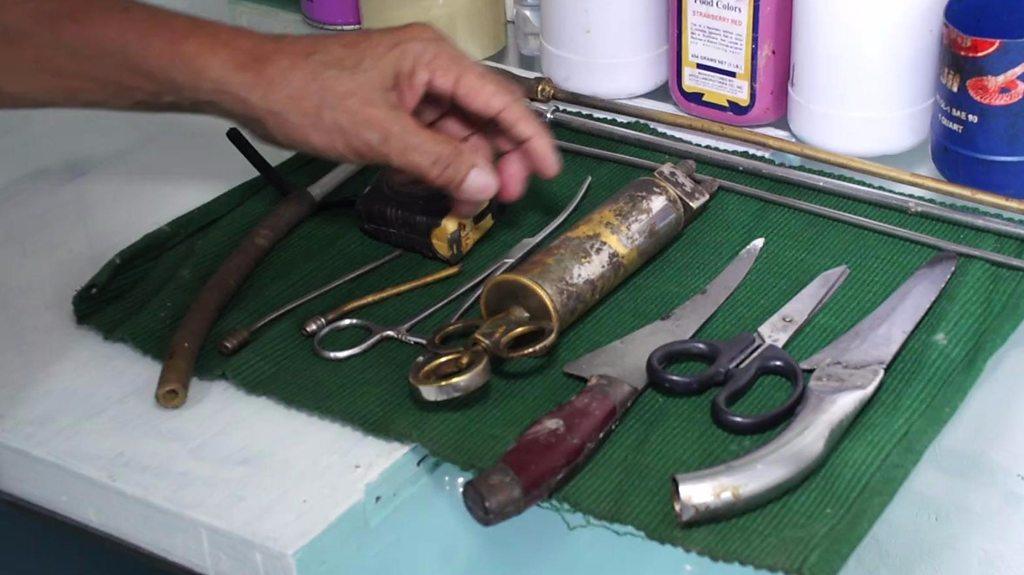Philippines drug war: Police guilty of murdering Kian Delos Santos
- Published
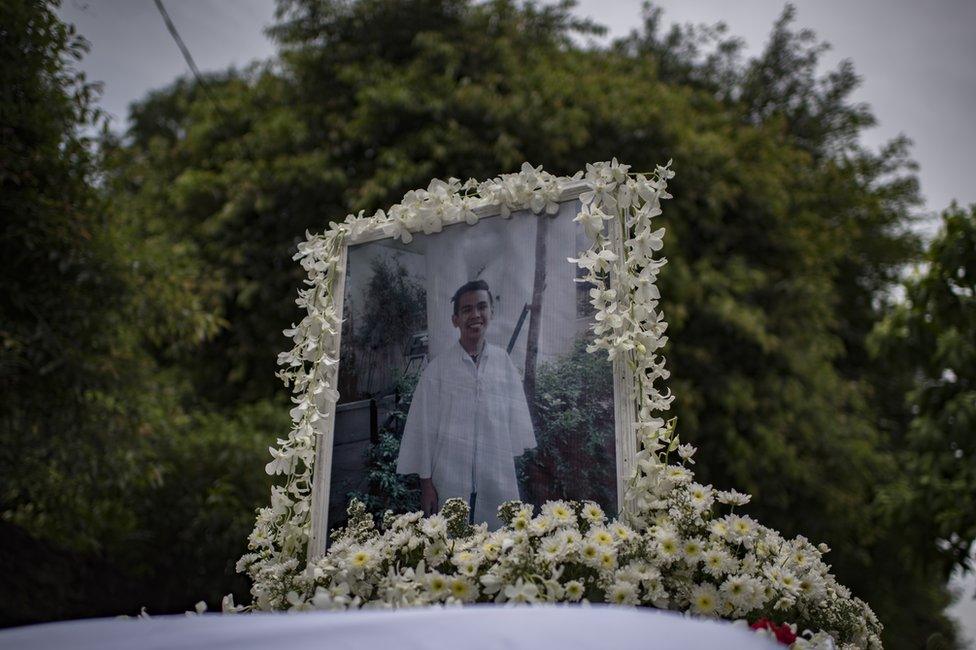
The killing of Kian Delos Santos was one of the most high-profile deaths in the campaign
Three Philippine police officers have been found guilty of the high-profile murder of a teenager, the first such convictions since President Rodrigo Duterte's "war on drugs" began.
A court sentenced them to up to 40 years in prison each for the killing of 17-year-old Kian Delos Santos in 2017.
President Duterte launched the anti-narcotics campaign in 2016, to deal with a rampant drug problem.
Since then 5,000 dealers or users have been killed, according to police.
President Duterte has been criticised by human rights groups for what is seen as sanctioning the extrajudicial killings and promising to pardon police officers convicted for "drug war" killings.
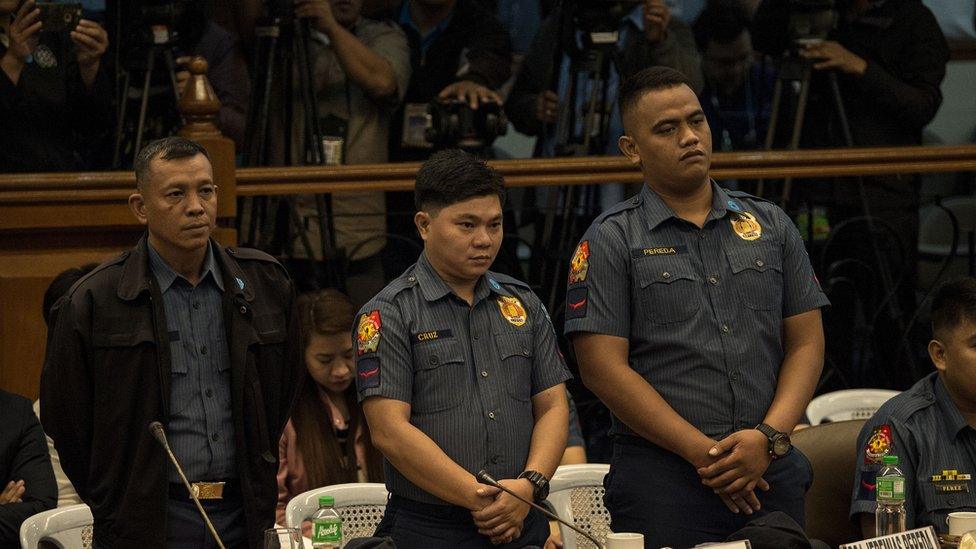
The judge said murder was "not a function of law enforcement"
"A shoot first, think later attitude can never be countenanced in a civilised society," said Thursday's ruling by Judge Roldolfo Azucena.
"Never has homicide or murder been a function of law enforcement. The public peace is never predicated on the cost of human life," he added.
The killing of Kian Delos Santos in the capital city, Manila, has been one of the most high-profile deaths in the campaign.
He was found dead in an alley. He was accused by police of being a drug runner - though the family dispute this. Police said they had killed him in self-defence.
Then CCTV footage emerged contradicting the official police report and sparking huge public outrage and protests.

A family's trauma that struck a chord
Howard Johnson, BBC News, Manila
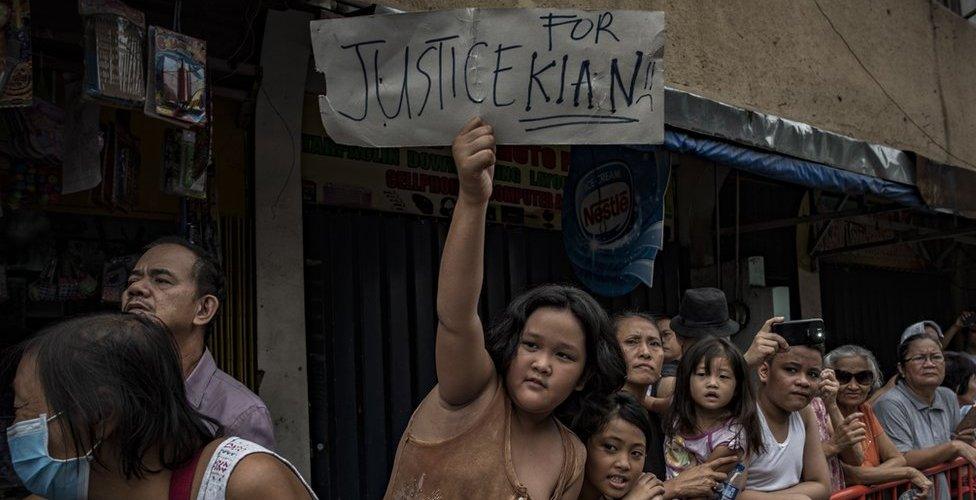
On the day of Kian Delos Santos's funeral, hundreds turned out wearing white T-shirts with the words "Justice for Kian" emblazoned across them.
But Kian's death had a much wider significance: it was the first drug war killing that caused national outrage.
Kian was the son of an Overseas Filipino Worker (OFW), his mother Lorenza worked in Saudi Arabia as a domestic helper, sending remittances to her family. Many in the Philippines with OFW relatives could relate to the family's trauma.
President Duterte had modelled himself as father-like figure to clean up drugs and crime back at home, but now his drug war had killed a teenager.
Two days after the funeral, President Duterte met the Delos Santos family at the President's Palace in Manila and promised to ensure an early resolution of the case.
Today's verdict will no doubt be celebrated by the government as a delivery of that promise, but human rights groups say there are still thousands of other drug war killings that are yet to be independently investigated and given due process.

Two months after the killing the police were ordered to stop the anti-drugs campaign. But the campaign was reinstated in December last year with President Duterte citing a worsening drug situation.
Human Rights Watch called the convictions a "triumph of justice and accountability".
The group also said it served as "warning to members of the Philippine National Police to respect due process and the rights of civilians as they do their job".
The three convicted policeman are not eligible for parole.
Presidential spokesperson Salvador Panelo said in a press briefing the verdict showed "that this country has a robust judicial system".
Mr Panelo also reiterated that President Duterte's "war on drugs" was always intolerant of any kind of abuse from military or police.
The International Criminal Court (ICC) is currently examining the anti-narcotics campaign and the extrajudicial killings. In response, Mr Duterte has started the process of withdrawing the Philippines from the ICC.
- Published20 August 2017
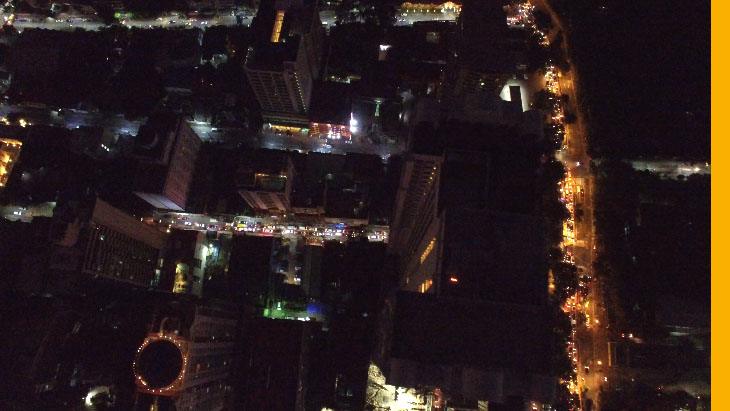
- Published15 September 2017
